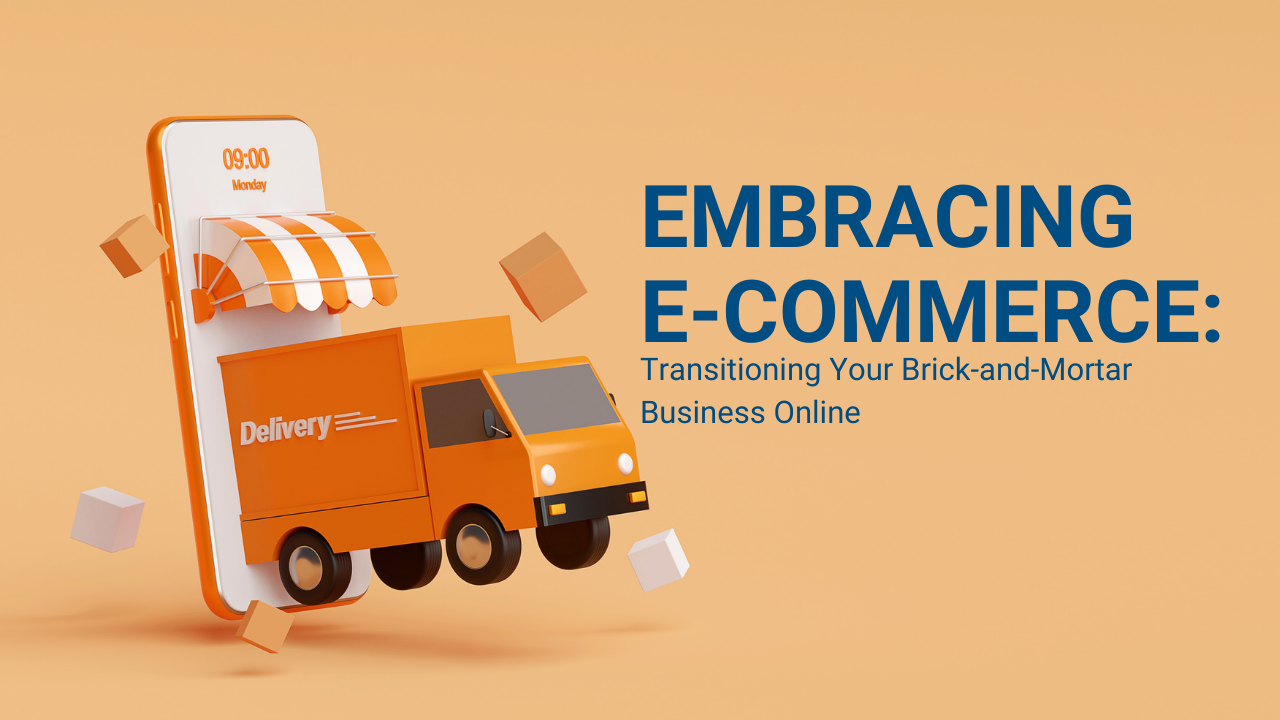The Power of Data: Using Analytics to Drive Small Business Success

In today's fast-paced, tech-savvy world, data is like gold for businesses of all sizes. For small business owners, using data and analytics can be the secret sauce to making smart decisions, optimizing operations, and driving growth. But how can small businesses tap into the power of data? Let's dive into some steps and strategies that can help turn data into a powerful tool for success.
Why Data Matters
Data gives you the insights you need to understand your customers, spot market trends, and run your operations smoothly. It helps you make decisions based on facts, not just gut feelings. By analyzing data, you can spot patterns, predict what’s coming next, and tweak your strategies to stay ahead of the game.
Key Areas Where Data Analytics Can Drive Success
- Customer Insights and Personalization
- Collecting Customer Data: Use tools like CRM systems to gather data on customer interactions, preferences, and purchase history.
- Analyzing Customer Behavior: Identify patterns in...
Are Subscription-Based Models the Next Big Thing for Small Businesses?

By this point, you've probably heard the buzz about subscription-based business models. Basically, instead of customers making one-off purchases, they sign up for a recurring service or product delivery.
Now, you might be wondering, "Is this subscription gig for me?" The short answer: heck yes! If you've got a product or service that people can't get enough of, why not make it a regular thing?
Whether you're dishing out doggy treats or keeping the HVAC humming all year round, there's a subscription model that can revolutionize how you engage with your customers.
First, know your niche inside and out: Whether you're offering vegan beauty products, DIY craft kits, or expert maintenance services, it's crucial to understand what makes your offering unique. Identify your target audience and tailor your subscription to meet their specific needs and desires.
Second, keep things exciting by mixing it up: Regardless of your industry, monotony is the enemy of subscriber satisfaction. Offer...
Passing the Torch: Why Succession Planning is Crucial for Small Business Owners

Whether you're just starting out, have been running your business for years, or are contemplating retirement, there's one crucial thing you might not have on your radar: succession planning. Yep, we're talking about passing the torch and ensuring your business thrives even when you're sipping cocktails on a beach somewhere. So, grab your favorite beverage, and let's dive into why succession planning is an absolute must-have for every small business owner.
Why Succession Planning Matters
Picture this: You've poured your blood, sweat, and tears into building your business from the ground up. It's your baby, your pride and joy. But what happens when you're ready to hang up your boots and retire? Without a solid succession plan in place, your hard work could go down the drain faster than you can say "golden years."
Succession planning isn't just about passing the baton; it's about safeguarding the future of your business. It ensures a smooth ownership and leadership transition, mitigati...
Scaling Your Small Business: A Practical Guide to Avoiding Premature Expansion

Congratulations, small business owner! You've successfully navigated the treacherous waters of startup life, and now you're contemplating the next big step – scaling up. But, hold your horses, eager beaver. Scaling isn't a one-size-fits-all endeavor. Just like that extra espresso shot in your morning latte, too much, too soon, can leave you with a bitter aftertaste (and unwanted jitters). So, before you start ordering custom gold-plated business cards, let's talk about when to scale your business and, more importantly, when to resist the siren call of premature expansion.
Signs You're Scaling Too Soon
1. Your Cash Flow isn't Flowing: If your business is more cash-strapped than a college student surviving on ramen, scaling might not be the wisest move. Scaling requires moolah – from hiring new talent to upgrading your tech infrastructure. If your cash flow resembles a leaky faucet, fixing that drip should be your top priority before dreaming of empire-building.
2. No Customer Lovi...
Customer Retention for Small Businesses

In the fast-paced world of business, it can be easy to prioritize tasks and forget one of the most crucial aspects of success - customer retention. Your hard work and dedication to balancing everything are admirable, but without a loyal customer base, your business will struggle to grow and thrive.
Why Does it Matter?
Customer retention isn't just a fancy buzzword. Think about it – it's five times cheaper to keep an existing customer than to acquire a new one. Money doesn’t grow on trees, and neither do loyal customers. Treat them like rare orchids in a garden full of forget-me-nots.
The Impact on Your Bottom Line:
Imagine your business is a leaky bucket. You can keep filling it with new customers (water), but if the bucket's got holes (poor retention), you're forever stuck in this Sisyphean water-balancing act. Customer retention patches up those holes.
When it comes to retention, remember the three C’s: Cash Flow, Credibility, and Community.
Cash Flow: Retained custom...
Mastering Cash Flow Management for Small Business Owners

When it comes to running a business, few challenges are as crucial to navigate as the ebb and flow of cash. You could be the world's best planner, the Queen of Order, the Maestro of the Budget, or the teller of fortunes, but nobody (and we mean nobody) is immune to the occasional hiccup when it comes to not having the cash you need…when you need it.
Today, we'll explore why cash flow is paramount and provide actionable tips for its effective management.
The Importance of Cash Flow
Cash flow is the heartbeat of your business, governing its financial health. It's not merely about revenue but the strategic timing of when money enters and exits your operation. (The flow, if you will.)
Here are key reasons why you shouldn’t take your eyes off cash flow:
- Survival and Stability: Cash flow is the lifeblood that sustains day-to-day operations. It ensures the operational continuity of your business by covering immediate expenses, salaries, and essential overheads.
- Capitalizing on O...
Guardians of the (Digital) Galaxy: What You Need to Know About Small Business Cybersecurity

Nearly everything we do is online these days. From the TV shows we watch to buying groceries, getting our news, communicating with friends, working out, retail therapy, banking, and virtual museum visits...there's really nothing you can do in "the real world" that you can't do online (with some ahem obvious and notable exceptions.) The point is that as technology increases, so will our consumption of - and reliance on - being connected to The World Wide Web.
As a small biz owner, protecting yourself and your customers from online threats and data breaches continues to be of utmost importance. As stewards of sensitive information, you have no choice but to adopt a serious stance towards cybersecurity.
Here are nine tips to help you stay safe.
- It's essential to have strong passwords to protect your systems and sensitive data. You can also use multi-factor authentication (MFA) to make things even more secure.
- Keep your software updated regularly to prevent any security vulnerabili...
Budgeting and Forecasting for Small Business Success: Know the Difference

Good things come in pairs: Simon and Garfunkel. Burger and fries. Stars and Stripes. Surf and Turf.
And Budgeting and Forecasting.
As a small business owner, carefully planning your finances is a must if you want to stay IN business; budgeting and forecasting are two essential tools that can help you achieve this goal. Although they may sound the same, they serve uniquely different purposes and play a crucial role in shaping the financial health of your small business.
In this post, we'll dive into the differences between budgeting and forecasting, why they are both essential, and how they can affect your business's success and financial well-being.
Budgeting vs. Forecasting
Before delving into the importance of budgeting and forecasting, let's clarify the difference between these two financial processes:
Budgeting is like a roadmap that tells you what money is coming in and what you'll spend it on for a year. It helps you set financial goals and use your resources wisely. You...
Embracing E-commerce: Transitioning Your Brick-and-Mortar Business Online

Want to run a successful business?
Change or die.
OK, dramatics aside, there is a lot of truth in these three simple words. In a rapidly evolving world, embracing change is often necessary for businesses to thrive. Failure to acclimate will find you in the graveyard of has-beens alongside MySpace, Blockbuster, and Enron.
This holds true for any business, but brick-and-mortar operations could benefit the most from a little shake-up. More specifically, transitioning - or adding - E-commerce to their playbooks.
Obviously, there are undeniable challenges, but the advantages and opportunities are equally compelling. Here, we explore the pros and cons of taking your brick-and-mortar business online and why you might find success in unexpected ways.
The Pros of E-commerce:
- Wider Reach and Market Expansion: One of the greatest benefits of e-commerce is the ability to reach a global audience. This makes your products or services accessible to customers beyond your local community, le...
Time Management Struggles for Small Business Owners: Tips for Effective Time Management

Running a small business can be a fulfilling experience.
BUT (and that's a big but), it's no secret that it can be challenging to manage all the things that need to be done at all hours of the day.
We recently polled readers of our newsletter, The Weekly, and an OVERWHELMING majority (59% to be exact) said their biggest struggle as a small biz owner is Lack of Time / Time Management.
Now, if someone could figure out the whole time travel thing to give us back hours in our days, they'd be a very wealthy person. But short of any breakthroughs made in the study of quantum mechanics or whatever, we'll have to make do with the 24 hours we're given.
So, what do we do?
Before we get to the solution, let's start with the problem. (Or, problems.)
Wearing Multiple Hats
Small business owners have to fulfill several roles within their company, which is one of their most significant challenges. They are responsible for marketing and sales, customer service, bookkeeping, peacekeeping,...



